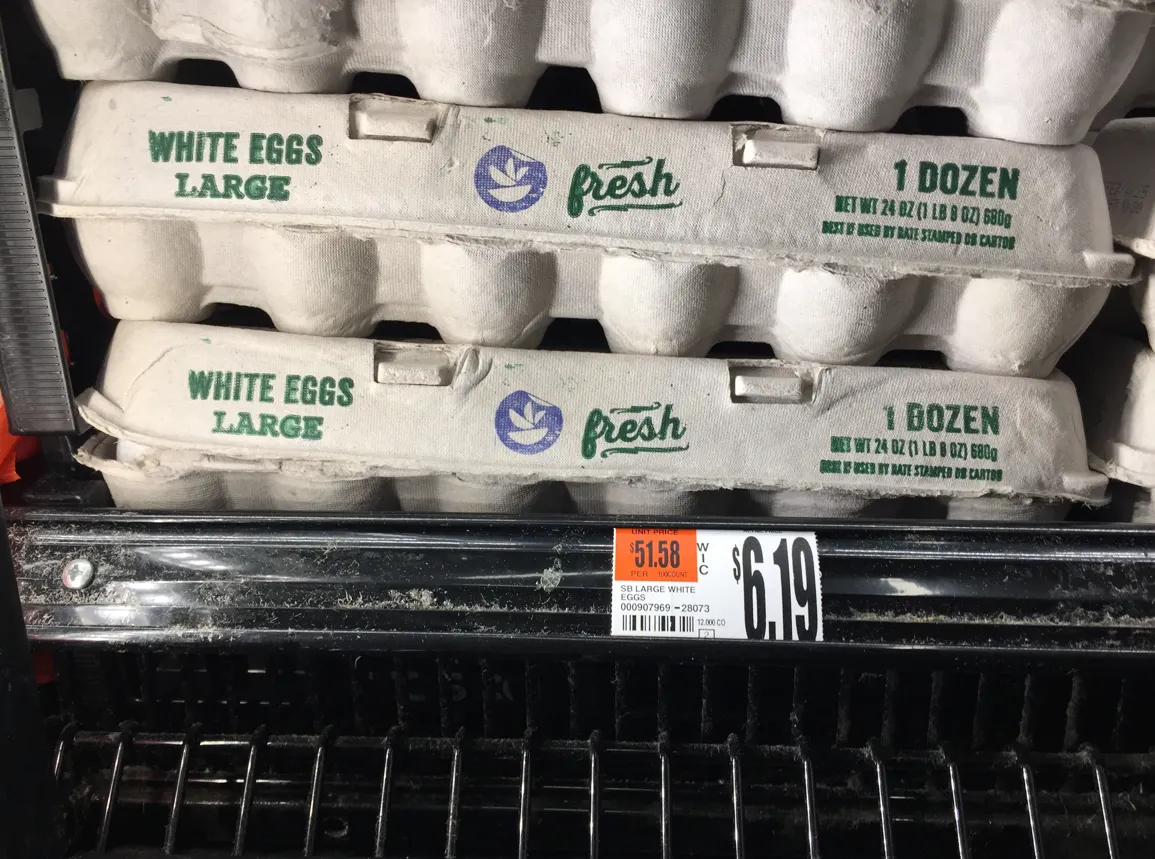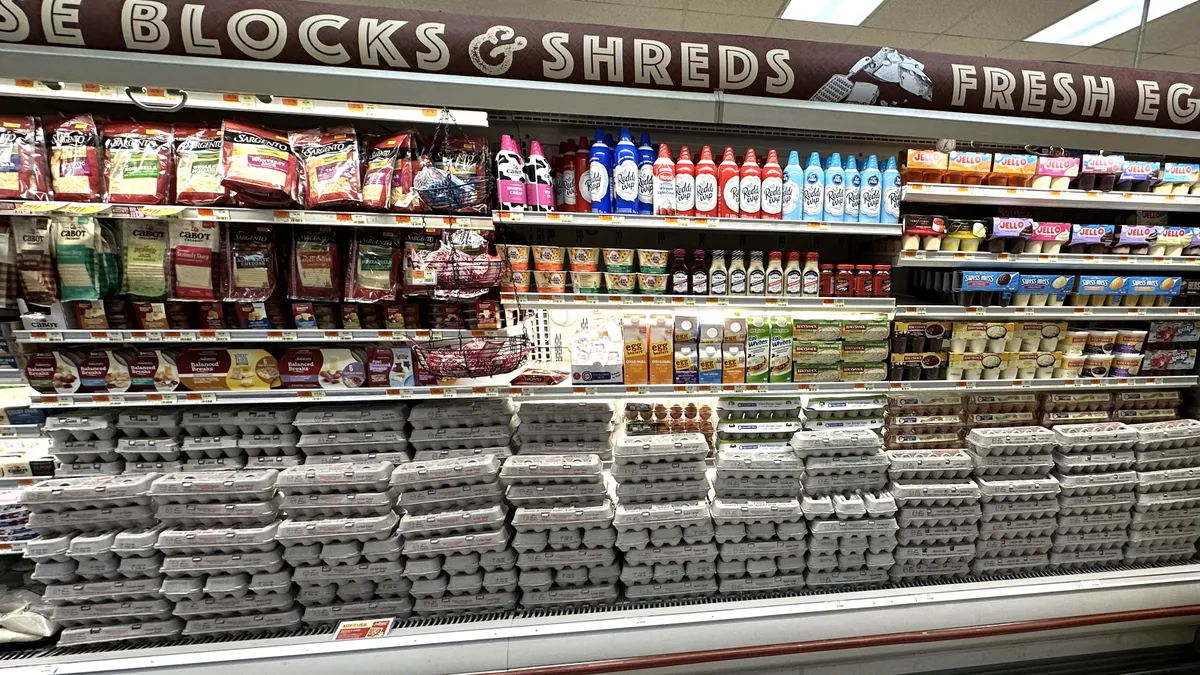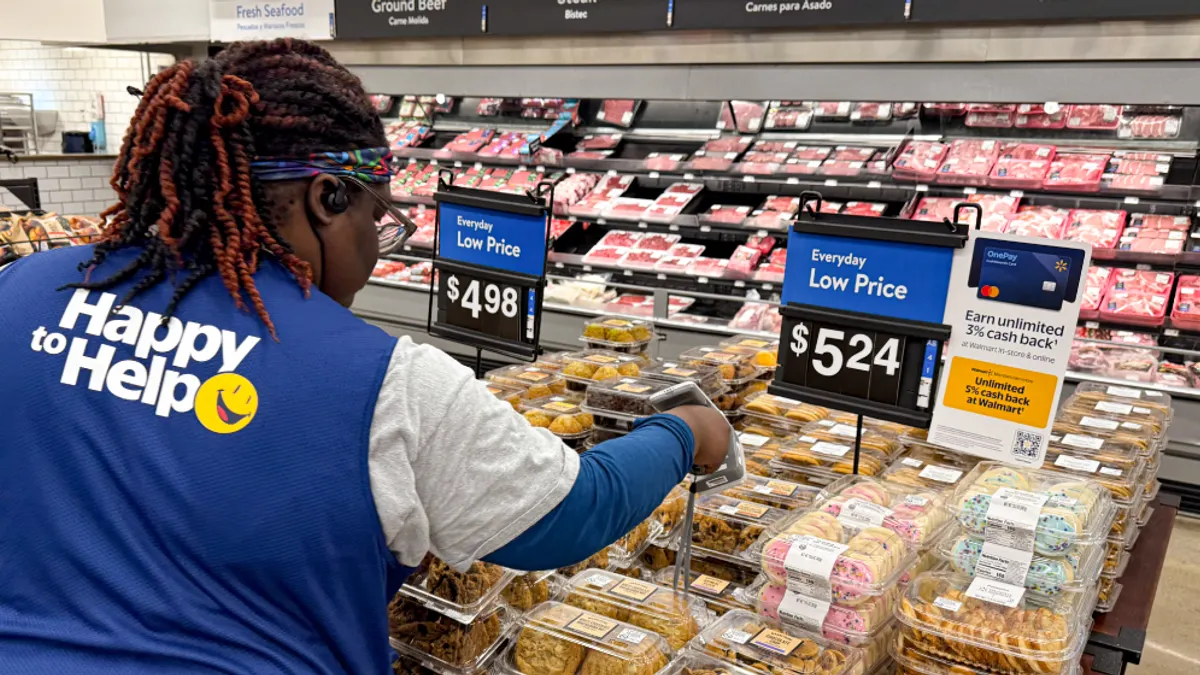As grocers continue to grapple with elevated egg prices, independent Connecticut supermarket operator LaBonne’s Markets is looking to stand out by making the case that when costs on essential items spike, it strives to blunt the impact on consumers.
While LaBonne’s has seen its competitors substantially push up prices on eggs amid the persistent supply challenges posed by the ongoing bird flu crisis, the grocer has made a point of holding increases to a minimum to underscore its commitment to affordable groceries, said Bob LaBonne Jr., president and CEO of the four-store chain.
That strategy has pinched LaBonne’s profits on eggs, but LaBonne said he has found that by positioning itself as a low-price leader on high-profile goods like eggs, the chain benefits by building customer loyalty — and pushes back on the notion that independent grocers are more expensive to shop at.
“As a smaller store, you have the image of being high-priced. So the last thing you want to do is confirm that by being overly aggressive on trying to get margins on items that are sensitive,” LaBonne said.
On Thursday, LaBonne’s offered a dozen Egglands Best eggs for $3.99 at its location in Watertown, Connecticut. Meanwhile, a Stop & Shop store less than a mile away charged $5.99 for a dozen of its private label eggs.
Other grocers said they recognize that grocery prices pose a challenge for shoppers, but offered few details about their responses to the supply constraints that have driven prices up.
“We understand and apologize for the inconvenience. Our teams are doing everything possible to continue to provide our valued customers with the quality products they expect from their Harris Teeter. We appreciate our customers’ patience and understanding,” a Harris Teeter spokesperson said in an emailed statement on Wednesday.
The Kroger-owned chain has not imposed limits on the quantity of eggs shoppers may purchase, the spokesperson added.
However, a PCC Community Markets store in the Seattle area last weekend had a sign saying its egg stock was limited due to the bird flu and requested that customers buy a maximum of two cartons.
A Save Mart store in Auburn, California, on Wednesday had a limited supply of eggs and was selling a dozen large, cage-free eggs for $8.99, with a sign asking customers to limit purchases to one carton.
A spokesperson for Giant Food said in a Tuesday statement that “the chain will continue to closely monitor the issue, and will take appropriate action, if needed.”

Egg prices in the U.S. were nearly 37% higher in December than they were during the same period in 2023, the Bureau of Labor Statistics reported Wednesday. By contrast, overall grocery inflation for the month came in at a 1.8% annual clip and inflation was 2.9% across the board.
LaBonne said his company’s margins on eggs are currently between 10% and 15%, below its store overhead of about 18%. Dairy margins typically run in the range of 25% to 35%, he added.
“I would rather hold the price and [show] that we’re trying to take care of our customers and not get greedy,” he said.
Outbreaks of bird flu and fires at facilities in 2024 reduced the number of egg-producing chickens by nearly 40 million, according to USDA data cited by sister publication Agriculture Dive. More than 40% of those losses took place during November and December, with a third occurring in December alone.
LaBonne said his pricing strategy reflects his experience during the COVID-19 pandemic when the chain instituted temperature checks for shoppers as they entered its locations and limited store occupancy to 25% of capacity.
“In the end, those things that were more costly to do just made people come our way. It was against the norms … but in the long run, it paid huge dividends, because it made people trust and [recognize] that our employees are important and our customers are important,” said LaBonne.
LaBonne’s periodically advertises eggs, but has been careful not to promote them too aggressively because it can only get limited quantities from suppliers, LaBonne said. Still, LaBonne’s has not had to implement limits on the number of eggs people are allowed to purchase, he said.
Nevertheless, the retailer has recently seen egg sales decline at least 20% compared with periods when bird flu is not a factor despite people’s heavy reliance on eggs as a source of protein, according to LaBonne.
Egg sales were up nationwide in December even though prices were up by more than 50%, according to Circana data released Tuesday by 210 Analytics. “November and December are big months for eggs as baking, devilled eggs and other applications add to the typical egg consumption occasions,” 210 Analytics said.
Catherine Douglas Moran and Jeff Wells contributed reporting.




















